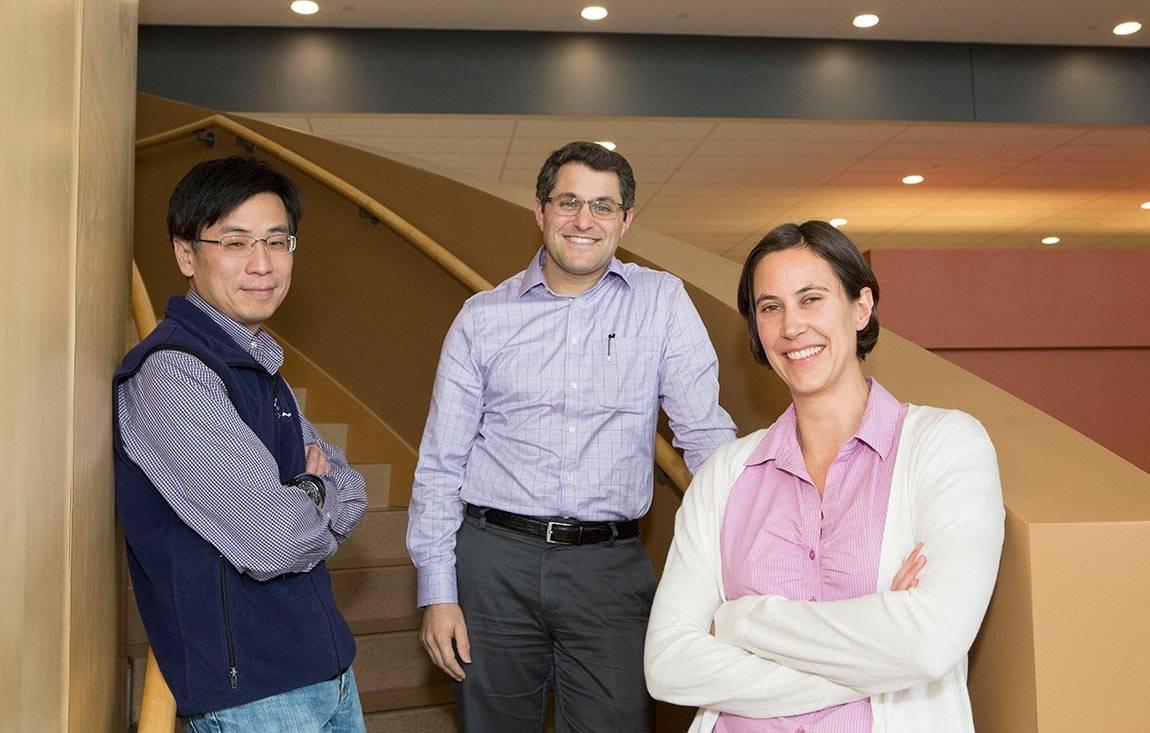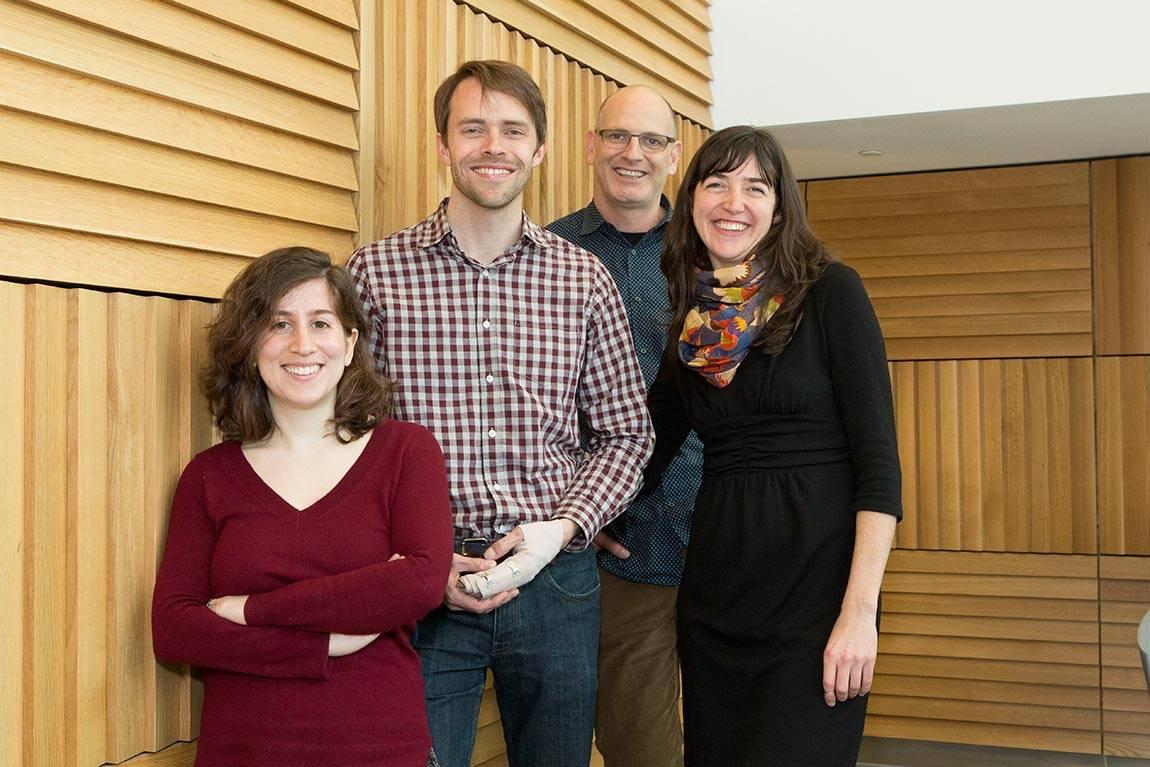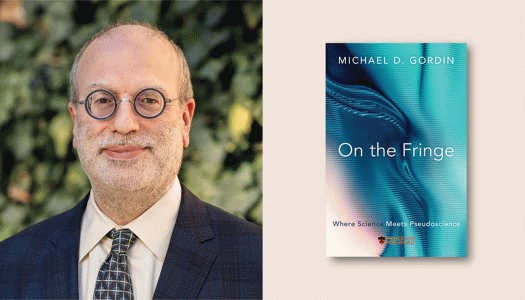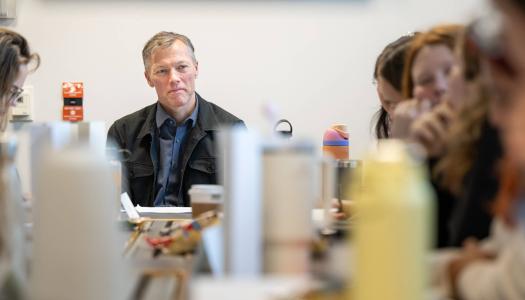A technology to uncover how the infant brain learns language and a microscope that can image and manipulate the inner workings of a functioning cell have been awarded funding through the Eric and Wendy Schmidt Transformative Technology Fund.

From left: Haw Yang, Joshua Shaevitz and Sabine Petry received funding to develop a new type of microscope for viewing living cells in 3-D to address key mechanistic questions about how cells function and learn more about the cellular missteps that lead to cancer, birth defects and other disorders. (Photo by Denise Applewhite, Office of Communications)
The fund, endowed in 2009 by Eric Schmidt, executive chairman of Google parent company Alphabet Inc., and his wife, Wendy, supports research projects at Princeton University that have the potential to make a major impact in a field of science or technology. Eric Schmidt is a 1976 graduate of Princeton and a former trustee of the University.
"Through the generosity of Eric and Wendy Schmidt, Princeton is able to support truly innovative and promising projects from our faculty members," said Dean for Research Pablo Debenedetti, the Class of 1950 Professor in Engineering and Applied Science and professor of chemical and biological engineering. "These are projects that have tremendous potential but may be too new or untested to obtain funding from traditional sources."



